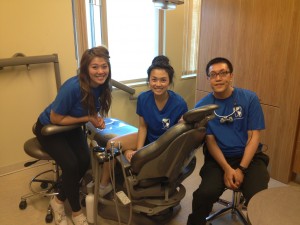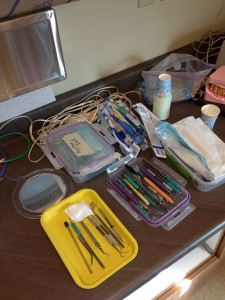The ability to debate a topic is essential as a health care provider. Although the debate may not be a formal one, a dental hygienist will find themselves debating importing issues with clients, other dental hygienists, and other health professionals. It is important that a dental hygienist can show his or her expertise, knowledge, and understanding of a topic using scientific research to find evidence based information to either support or refute an argument.
Last year, I participated in a debate held annually by the third year Dental Hygiene class. Although we felt we had limited knowledge on the topic, my group and I decided to take an anti-fluoridation stance in the debate. Initially, I had found it difficult to rally against water fluoridation – something that I had previously strongly (and perhaps somewhat blindly) advocated for. In the process of preparing for the debate, I learned to use critical thinking and scientific investigation to prepare myself to intellectually discuss a highly controversial, yet essential element of dental hygiene practice – fluoride use. Preparing for the debate prepared me for the “real world” where I am not constantly surrounded by dental professionals, and I will likely meet more people who do not believe in fluoride. From participating in this debate, and especially choosing a stance that I did not previously take, I learned a lot about the science and reasoning behind choosing not to use fluoride, instead of only the reasons that advocate for its use. I feel that I can help guide my future clients in their decision making around fluoride, and can provide a less bias and more evidence based information.
My debating skills were further tested in fourth year, where I participated in an amalgam debate. The topic focused on whether dental professionals should use amalgam as a restorative material. As a hygienist, my experience with restorations has mostly been detection of recurrent caries, looking for defective margins, and assessing the need for placement of restorations. Although I work with restorations in clinical practice, and I have completed biomaterial courses, I had previously not given much thought to what type of restoration should be used for my clients. In preparing for the debate, I realized that as a dental hygienist it is important to not only know the difference between the materials, but be able to give sound reasoning and advice to clients who may have difficulty deciding which they would choose. There is not only scientific reasons for choosing one material or another, but the social aspects of the decision are equally as important. Once again, I learned from this debate that it is important to know both sides of the argument in order to give unbiased and scientific evidence to clients.


